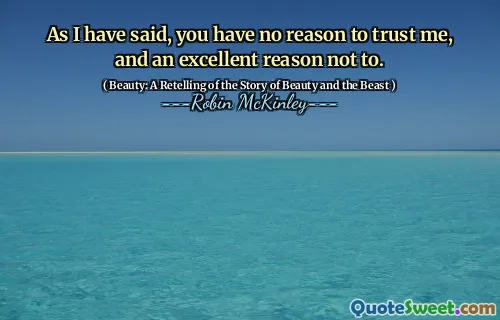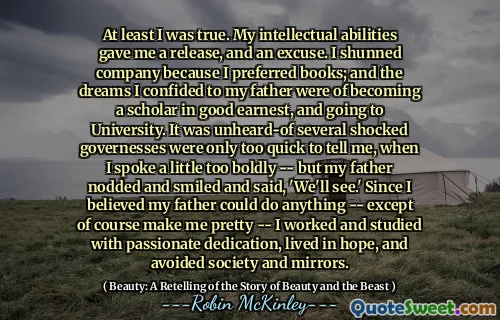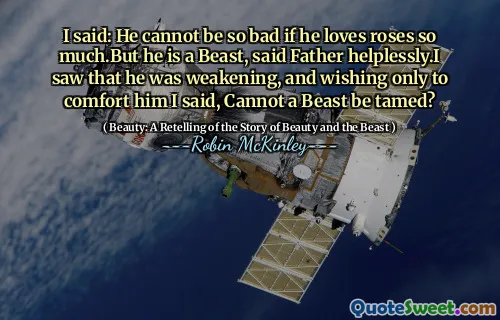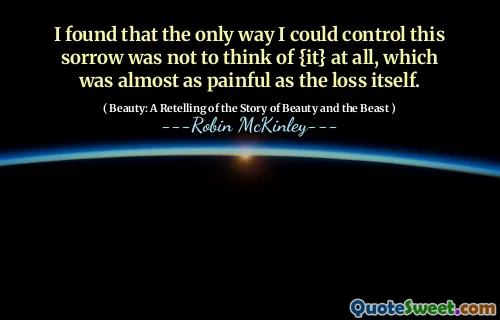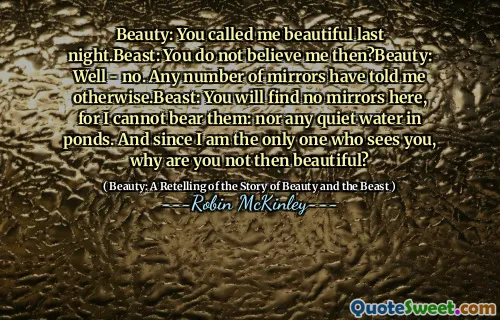
Beauty: You called me beautiful last night.Beast: You do not believe me then?Beauty: Well - no. Any number of mirrors have told me otherwise.Beast: You will find no mirrors here, for I cannot bear them: nor any quiet water in ponds. And since I am the only one who sees you, why are you not then beautiful?
In "Beauty: A Retelling of the Story of Beauty and the Beast" by Robin McKinley, a dialogue unfolds between Beauty and the Beast, highlighting issues of self-perception and external validation. Beauty doubts her own attractiveness, despite the Beast's compliment, as societal standards reflected in mirrors have instilled insecurity in her. She finds it hard to accept the Beast's view of her beauty, indicating a conflict between her self-image and how others perceive her.
The Beast, on the other hand, expresses his disdain for mirrors and reflective surfaces, suggesting that he sees Beauty in a unique way that transcends conventional standards. He challenges her skepticism by questioning why she wouldn’t accept being beautiful if he, who sees her without the distortions of society, believes it to be so. This conversation explores deeper themes of identity, acceptance, and the nature of true beauty, emphasizing the need to look beyond superficial judgments.
